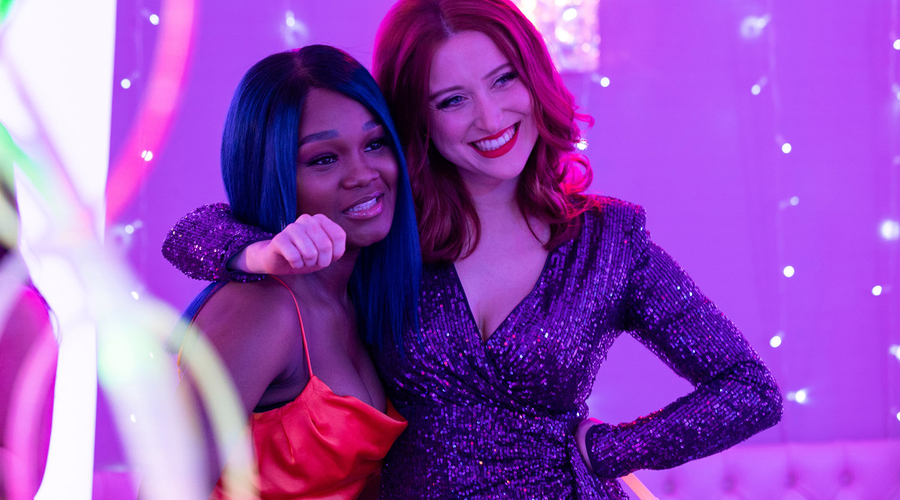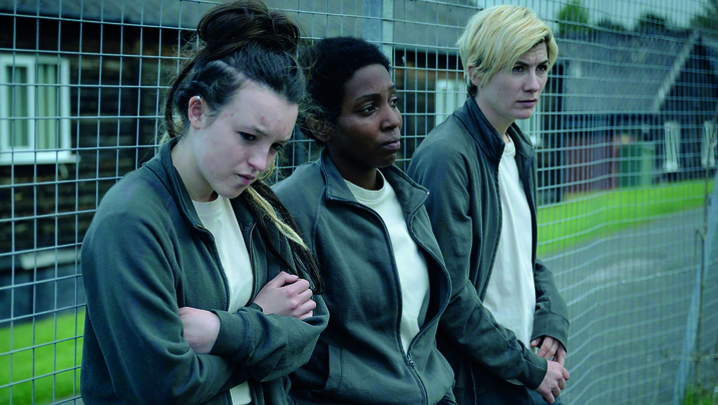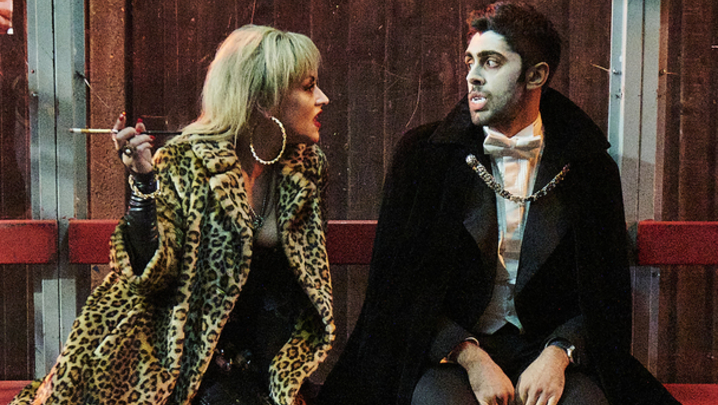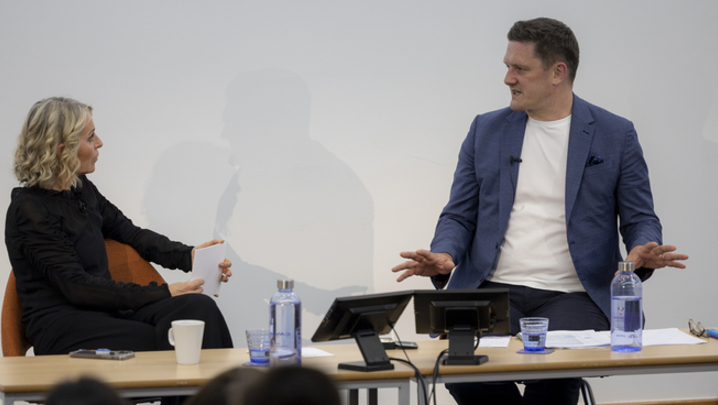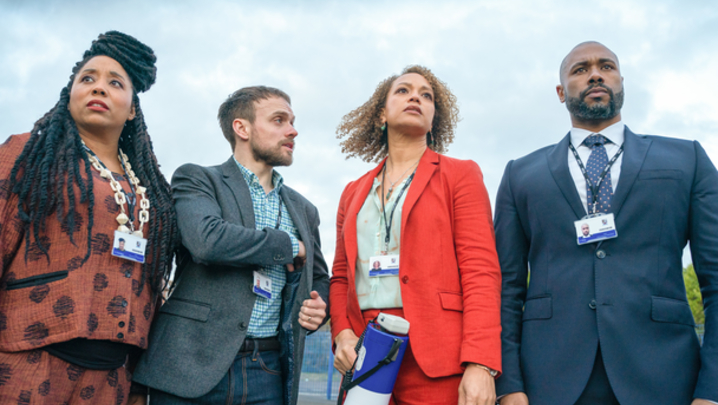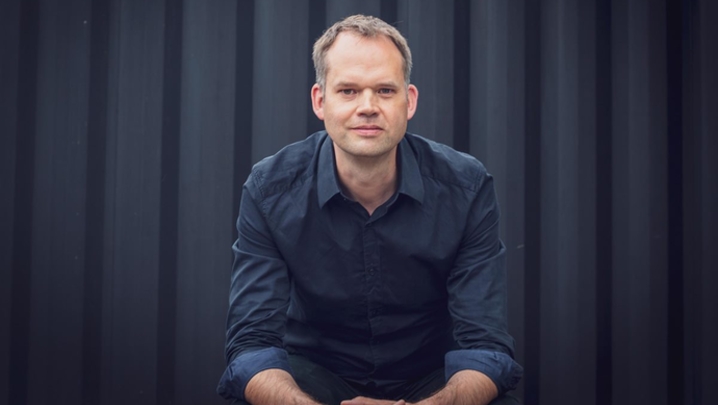The inaugural RTS Story Conference, hosted by the North West Centre, provided valuable tips for new and seasoned screenwriters
“Never write with a filter – thinking about what ‘they’ want you to write.”
“Love the one you are with.”
“Don’t be a wanker.”
These were some of the good-humoured but sound pieces of advice on offer from established writers at the inaugural one-day RTS Story Conference, which was packed with informative sessions featuring some of the biggest names in UK television.
Taking inspiration from the now-defunct BBC Writers’ Festival – “a wonderful annual event of writers coming together and having conversations in a really collegiate way” – Cameron Roach, the Chair of RTS North West, urged new writers, especially those whose voices are as yet unheard, to “not feel like an imposter… and to connect with people you might not have met before”.
Our report highlights four of the day’s eight sessions.
Writing for continuing drama
A writing career is “a marathon, not a sprint”, said panellist and former Casualty and EastEnders writer Sally Abbott, in the first session.
A spot on a writing team for a continuing drama is often considered to be the first rung on the TV writing ladder, but the reality is that it is tough to get one.
Hollyoaks writer Jonathan Larkin cautioned against adopting his initial “cocky attitude” of: “I’ve watched an episode, I can do that.” Turned down for the show on his first attempt, he then “watched six months of episodes in two weeks, really absorbed the show, then wrote a second trial episode and got the job”.
Once there, though, you have to hit the ground running. Abbott described the writing process from story document to production script. “Very late on the Friday night before commissioning on the Monday,” she told the audience, “you get sent the document [which] includes research, notes on actors’ availability and a month’s worth of storylines.… It can be about 100 pages long.”
She continued: “There’s an A, a B, a C and a D story. You have to work out your really strong narrative drive – your ‘spine’ – through that episode… so you know where you want to go to.”
At commissioning, “there’s a lot of [trading] with other writers” for parts of the storyline, and with schedulers for the actors. “You come out of there with an agreement about what you’re going to do. And then you write it.”
Abbott said soaps involve “a lot of rewrites” because the episodes “only really start to exist as we get nearer production”.
Casualty, according to Abbott, is “a Saturday-night film. So you get a little bit of serial” but create your own story-of-the-day. “Make it as exciting as possible,” she said, “because you pitch it to the people who finance and schedule it.” If your story excites them, she said: “They’ll find the money to do that helicopter crash.”
Jayshree Patel, another Hollyoaks writer, acknowledged that “a lot of people go into continuing drama as a stepping stone into writing what you really want to write.… But it’s 1,000% important to engage with what you’re doing, because you can feel it when a writer isn’t emotionally engaged.”
Citing Hollyoaks’ recent storyline about far-right radicalisation, Patel insisted: “Don’t forget all the good stuff that continuing drama can do, all the changes you can make… in people’s lives.… It’s what you’re doing the job for.”
Session 1 was chaired by Lucy Allan, Head of Continuing Drama, Lime Pictures.
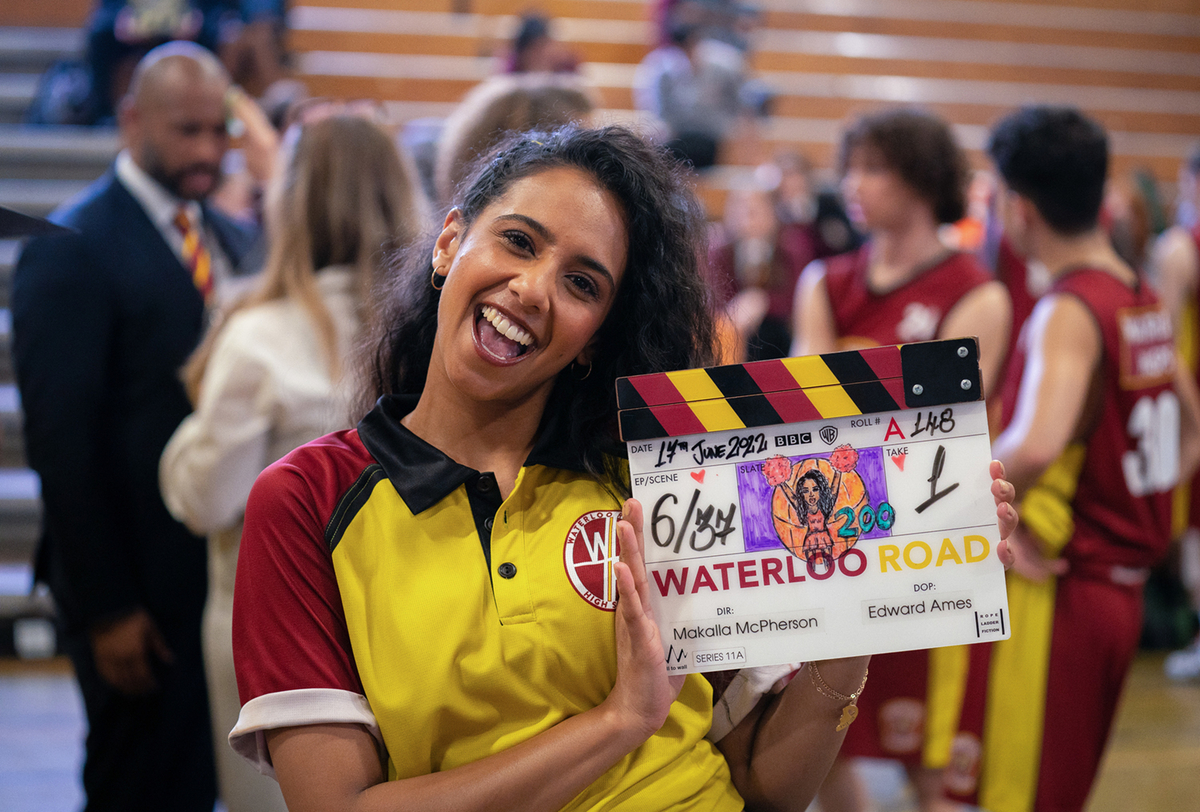
Local heart, global brand: working with the BBC
There are routes other than soaps to kick-start a writing career and the BBC has a range of ways in which writers can engage.
Jo McClellan, drama commissioning editor for the North of England, said: “I’m one of seven commissioners [and] we make shows across the whole of the UK.” Her main function is “reading submissions. I’ve got my own development slate. And I oversee the production of a number of shows.”
The commissioners discuss potential projects with colleagues, then decide who wants to take a project further [because] “some commissioners have special relationships with particular writers”.
Alice Ramsey, commissioning executive, North, explained some of the initiatives she manages: “Write Across [Liverpool is] about engaging local writers who haven’t applied to BBC Writersroom because they didn’t think it was for them.… There’s ‘Voices’, for new and emerging writers… ‘Drama Room’, which is the next level – you’ll have that bit of experience in theatre or film… Then there’s ‘Pilot’. To apply for that, you need to have an agent or a credit… It’s for writers who are very nearly on the commissioning slate.…There are also opportunities such as the Waterloo Road Shadow Scheme.”
She added: “Invite us to your shows. Send us your films to watch. We’re always on the hunt for great talent.”
McClellan said: “We’re the audience, like you. Just looking for something good. The first episode has to give you some sense of the promise of the entire show… without giving it all away. You have to give that tonal flavour.”
She continued: “You have to know why your character is really interesting, and why audiences are going to be obsessed with them. And that there’s enough ‘event’ to keep you powering through – a BBC hour [takes] a lot of story.”
For Ramsey, if “it’s a world or a territory that’s not been seen on screen before… that’s what pulls me in. Match that with the writer’s brilliant character writing, and sparky, unfiltered dialogue… Align those things with [a script] that comes from a place of truth, and there’s specificity to it… and the audience will completely grab it.”
McClellan recommends writers consider iPlayer when preparing a pitch. “When you scroll, what catches your attention?... What’s your ‘thumbnail’ [iPlayer image] going to be?”
“Overnights aren’t really a thing any more,” she said. “It’s a 30-day iPlayer figure.… We can showcase something on BBC One, repeat it on BBC Three, and put it up on iPlayer.”
And, she said, writers don’t need to be concerned about budgets. “We partner with other [companies] to make the show what it needs to be.”
Session 2 was chaired by Yasmin Ali, Development Editor, Rope Ladder Fiction.
Keeping ahead of the curve with Channel 4
Once writers have established the beginnings of a track record, it becomes easier to approach streamers and broadcasters other than the BBC.
Channel 4’s Head of Drama, Caroline Hollick, is proud of its annual schemes, such as 4Screenwriting for writers with no broadcast credits and 4Stories, which aims to bring on writers and directors from diverse communities.
She told the RTS: “Somewhere Boy is testament to the fact that you don’t have to be Jack Thorne or Russell T Davies to make an enormous splash on Channel 4. Pete Jackson was an actor for many years, but he’d written [award-winning] radio. Somewhere Boy was his first television series, for which he won a Bafta.”
She added: “He’s a talent working with the right producer. My advice… is find those producers and script editors who will really understand and support you.” Having learned everything she knows from “legend” Nicola Shindler, Hollick believes what makes a good indie producer is someone who “understands story so fundamentally that they inspire the best in writers… and they’re the ones I want to keep working with.
“If there’s a difference between the scripts that go into development… and the shows that go all the way through the process [into production], it’s… the central narrative drive.”
But [Channel 4] “can only take ideas from producers, we can’t take them from individual writers,” she said. “If I don’t know the writer, I’ll ask for a sample script, because it’s very hard to read a story document without a sense of the voice of the writer.”
“Have a really, really good spec,” she advised. “If you have a spec that’s not getting you anywhere, junk it and write a new one.”
Channel 4 makes only four or five new dramas a year, but Hollick confirmed that it is still prepared to take risks. “If we can’t take risks, who will?” Studying data, she said, proves that “Channel 4 speaks directly to a UK audience who want to be challenged and are incredibly sophisticated... Our role is to shine a light on who we [in the UK] are today.… We are here to push the boundaries, for sure.”
Session 3 was chaired by Kristian Smith, Managing Director, Leopard Pictures.
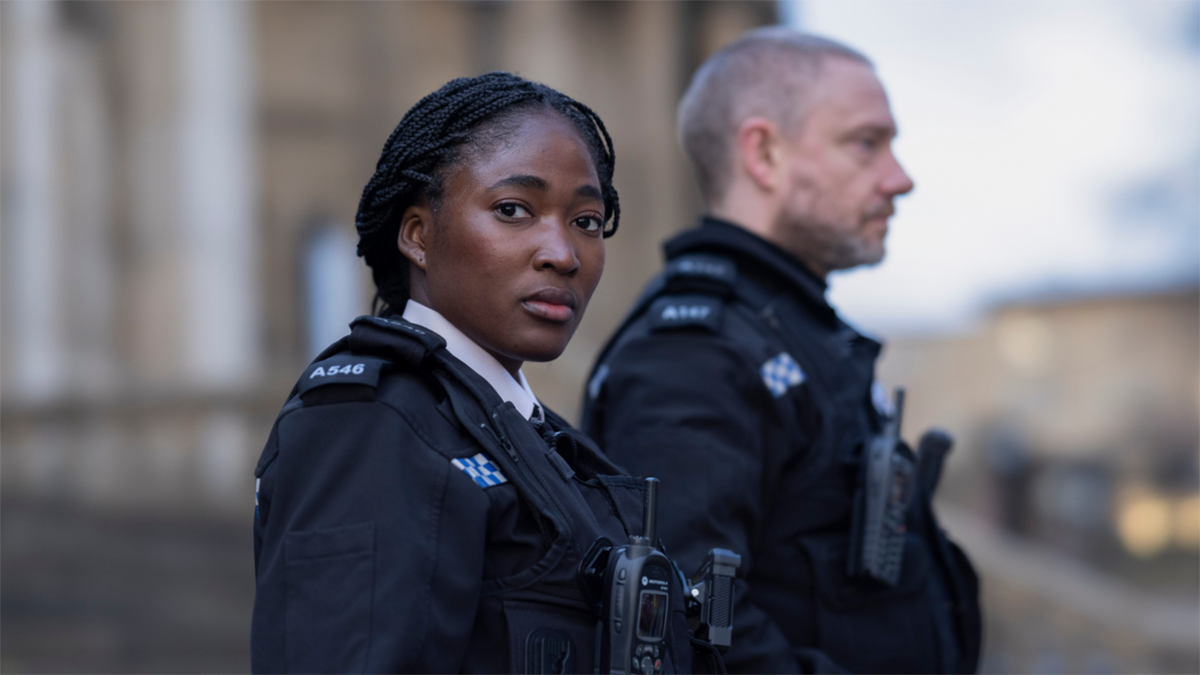
Demystifying the commissioning process
The next step for writers building a career is to get an agent, and that is normally how they would approach Jon Mountague, Director of Comedy at Sky Studios.
Brassic, “one of our most successful pieces”, said Mountague, came about because he was in the market for a Shane Meadows piece: “A lot of This Is England, although pretty bleak in the main, was brilliantly comic at times, and those bits really spoke to me.”
Meadows was busy and turned down Mountague, but the idea for Brassic [co-written by Joe Gilgun and Danny Brocklehurst] arrived in Mountague’s inbox the same week.
“I’m really interested in this notion that the two genres of comedy and drama are converging and combining.” Citing The Bear on Disney+ and HBO’s Succession, he said: “I think of it as ‘scripted with a smile on its face’.”
He has directed new writers to Sky Comedy’s open scheme in collaboration with the Birmingham Rep theatre. Mountague said: “We do eight short-form plays, performed to a living, breathing audience… because, in comedy, [writers] don’t often read things out to an audience. The first time it happens is the read-through for the show and, if people aren’t laughing at the read-through, that’s really scary. So, it’s important in comedy for writers to understand laughter and how it works.”
Liam Keelan, Senior Vice-President of Original Content for EMEA, told the audience that writers approaching Disney+ “tend to come via production companies pitching us ideas, whether that be a script, an outline or an ‘are you interested in this subject?’.
“We’re a small team so we discuss ideas on a weekly basis.… We’re completely story-led… whether it’s drama or comedy, and we’re looking for those ideas that feel distinctive and aren’t being done by other people.”
He added: “It’s about getting a dialogue going. Once we get to the next stage, we’ll talk to the writer.
“Local stories that feel distinctive do tend to cut through. [BBC One’s] The Responder, for example, feels like a very local story but it’s got many universal themes… they are the kind of things we’re looking for.... What works locally will work internationally.”
Mountague, joking that Sky’s Wales-set comedy Stella needed subtitles even for its UK audience, agreed that comedies often don’t travel, but noted: “It’s not an absolute priority for us to sell a show globally.”
What he is looking for is “that sweet spot between the mainstream and the credible. Between Mrs Brown’s Boys and Fleabag. If it’s too niche, we’re not getting bums on seats.”
For Keelan, too, it was about bums on seats. But he stressed that it was also important to make room for wild cards. “It would be a really depressing world not to have space for the odd one… where you feel like: ‘Oh my God. There’s just something in that idea, and it would be good to give it a go and see where it leads.’”
Session four was chaired by Hannah Rodger, Development Executive, BBC Studios.
Report by Carole Solazzo. The one-day RTS Story Conference was held at the Everyman Theatre, Liverpool, and hosted and produced by RTS North West in partnership with the Everyman Theatre, WoWFest, BBC Writersroom and Culture Liverpool.

